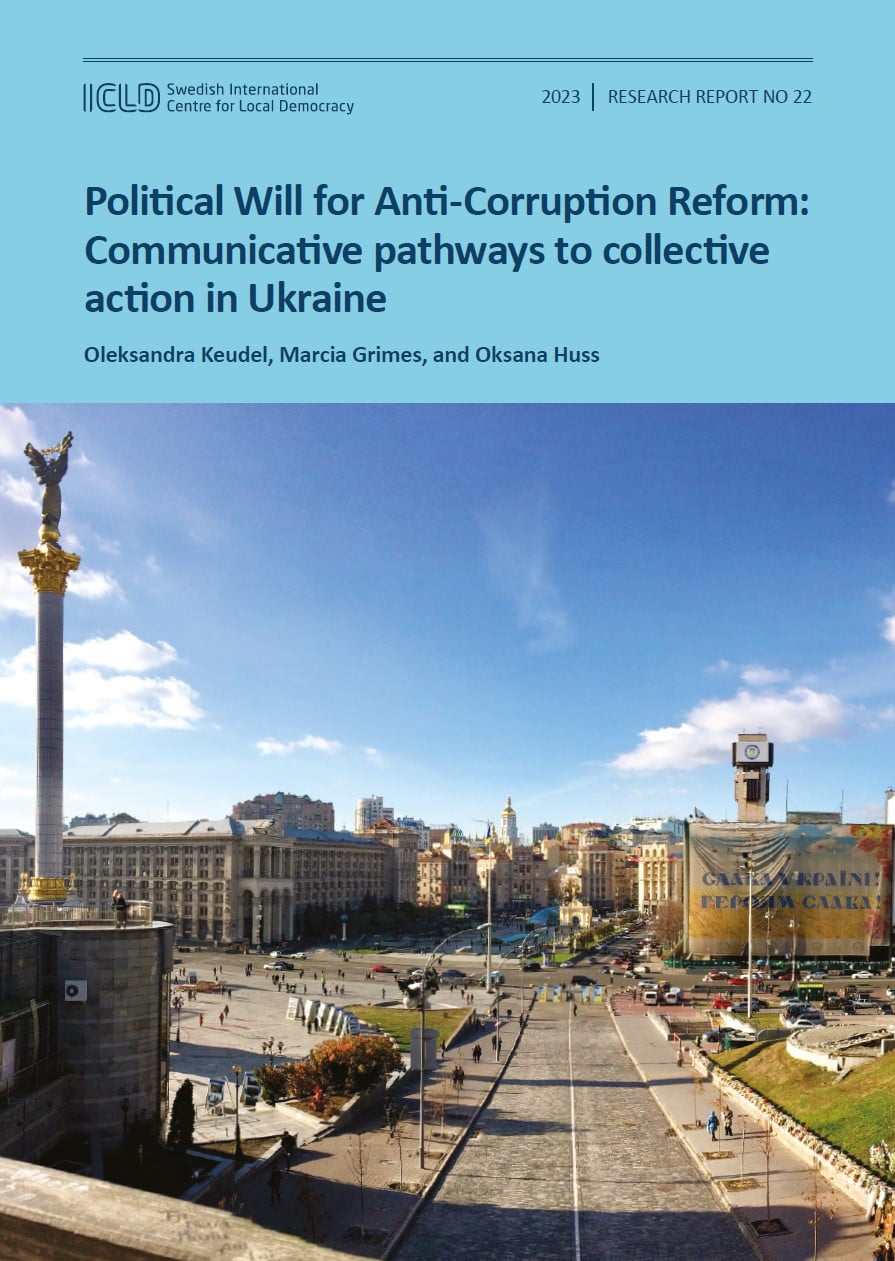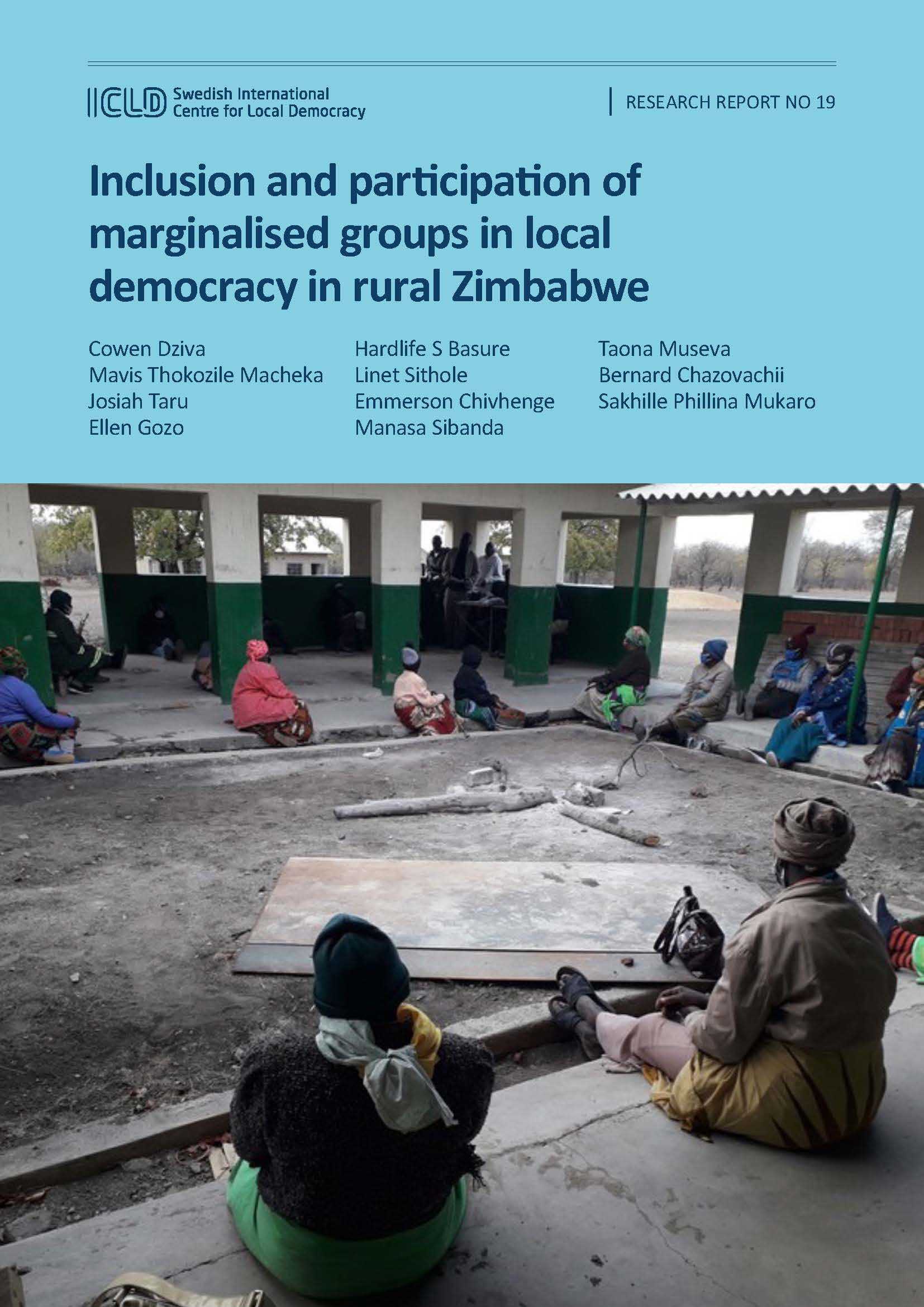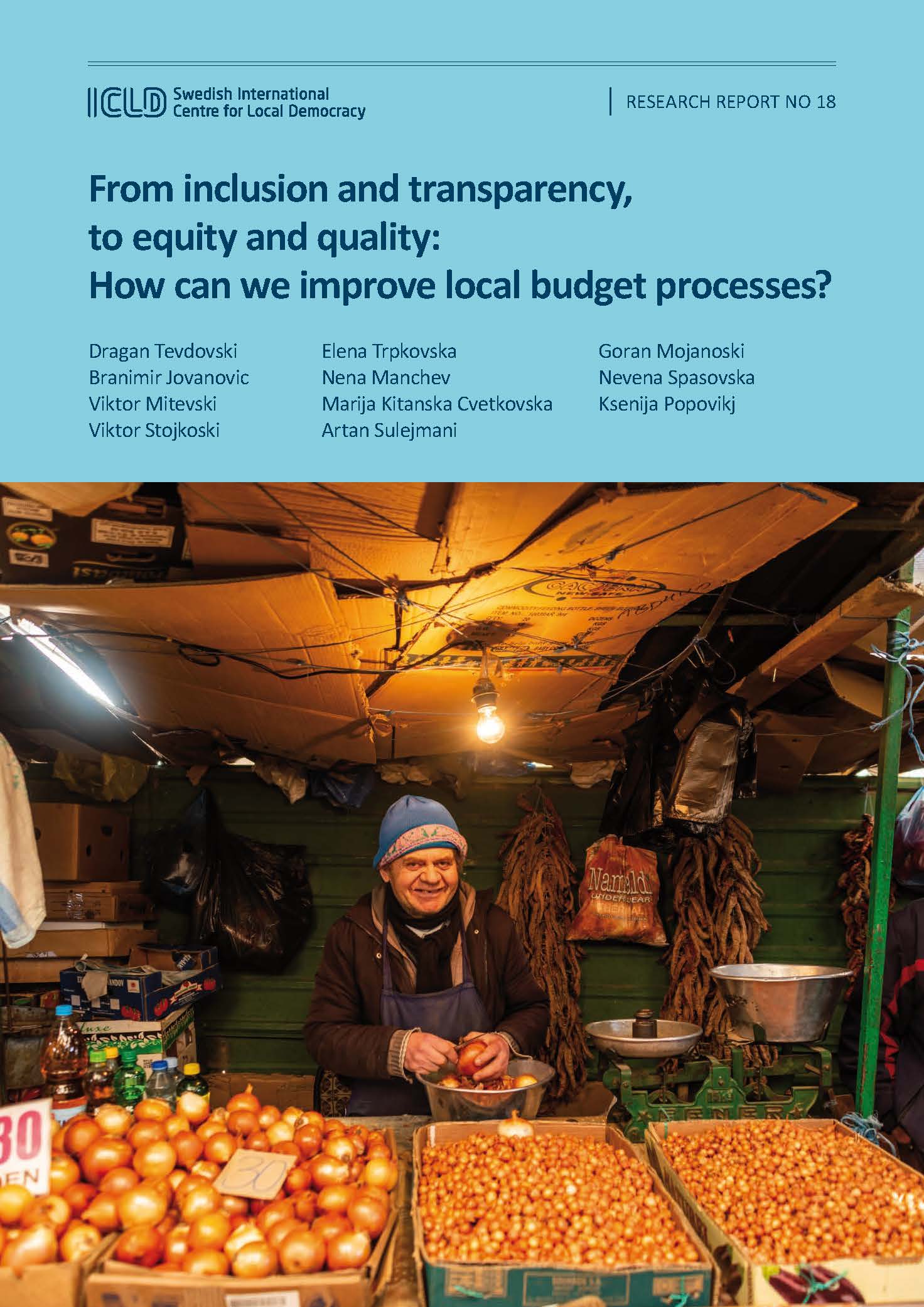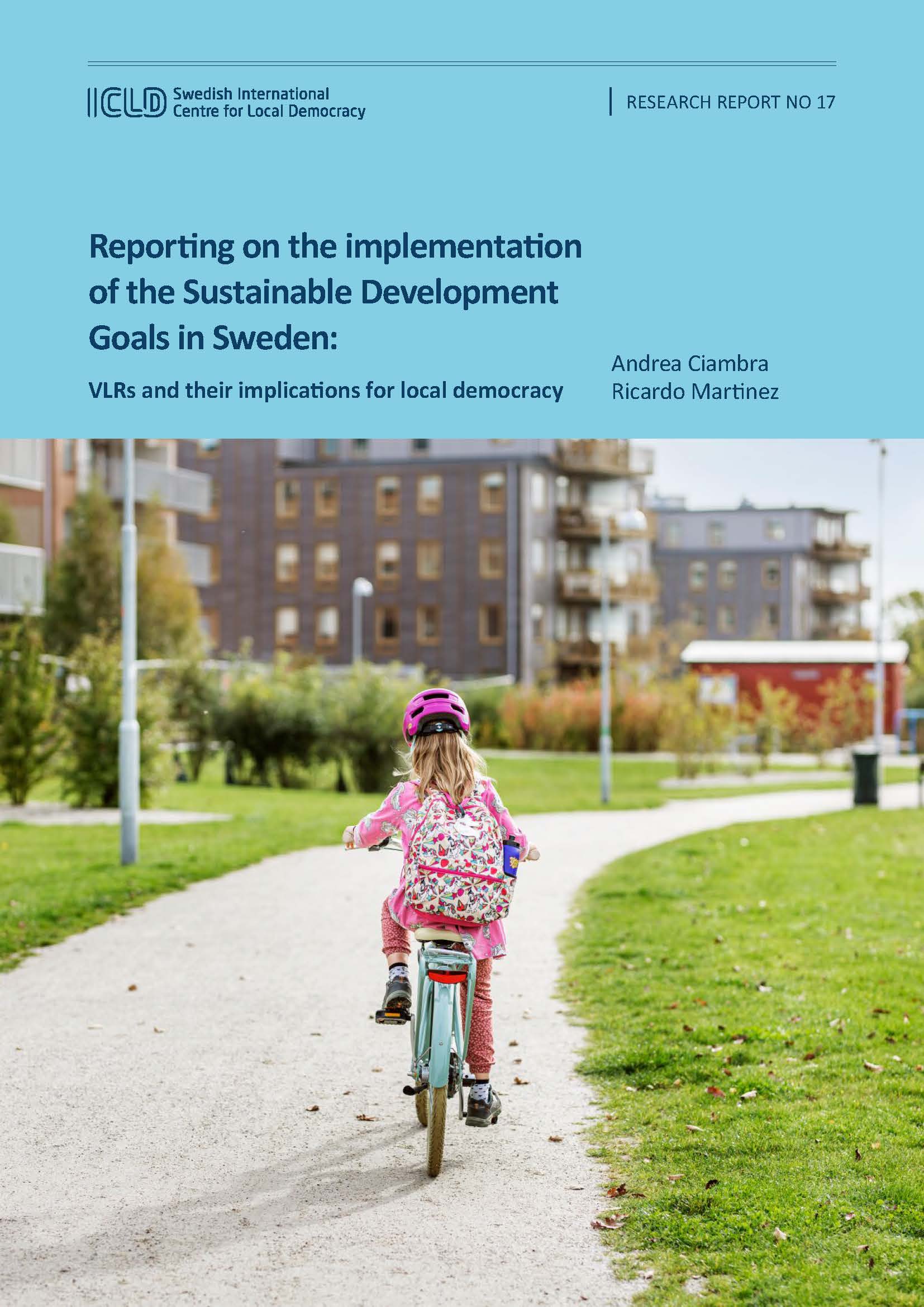Research Reports
-
Political Will for Anti-Corruption Reform: Communicative pathways to collective action in Ukraine
Why do some local public authorities engage in meaningful and sustained anti-corruption efforts while elsewhere such initiatives falter? To address this question, we advance a definition of political will as it relates to anti-corruption reforms and examine six local settings in Ukraine which showed sustained reform effort between 2014 and 2021. While previous conceptualisations see…
-
Research report: Whose voice matters? Inclusion in local decision-making in Kenya and Lebanon
This research report compares how local inclusion and participation is connected to citizen influence in two post-conflict societies. This report highlight the special circumstances in a society with experience of armed conflict and deep societal divides. While inclusion is crucial to local democracy, this research also shows the risk of perpetuating conflictual divides. It warns…
-
Inclusion and participation of marginalised groups in local democracy in rural Zimbabwe
This study on the extent of marginalised groups’ participation in local democracy in rural Zimbabwe adopts a mixed research approach: data were gathered through self-administered questionnaires, focus group discussions, key informant interviews and document review. Results show that varied mechanisms exist – including the national Constitution, policies, and institutional frameworks – that allow for the…
-
The Role of Social Norms in Reducing Corruption in Education: A Case Study of Schools in Hanoi-Vietnam
This research report presents empirical findings from an ethnographic study of the role of informal social norms in reducing corruption in public and private schools in Hanoi. The study begins by building a theoretical framework that inculcates the significance of local informal social norms in analysing/understanding corruption and designing counteraction strategies, especially at the sub-national…
-
From inclusion and transparency, to equity and quality: How can we improve local budget processes?
The objective of this project is to investigate how equitable, inclusive, transparent and accountable budget processes are at local government level and to propose measures for their improvement. The analysis included four pilot municipalities in North Macedonia, selected to represent different geographic locations and socio-economic characteristics. We employed different methods to assess the current state…
-
Reporting on the implementation of the Sustainable Development Goals in Sweden: VLRs and their implications for local democracy
In 2021, four Swedish municipalities – Helsingborg, Malmö, Stockholm, and Uppsala – published their first Voluntary Local Reviews (VLRs), a report on the status of local implementation of the United Nations’ 2030 Agenda and the 17 Sustainable Development Goals (SDGs). VLRs have become a common instrument for subnational governments to show progress in the achievement…
-
Climate change is not the cause, migration is not the problem: Local representation and precarious young farmers leaving Senegal
This project examines the role of local governments in generating or reducing the current trend in which vulnerable people are migrating out of areas where climate variability is viewed as a driver of outmigration. The project seeks to identify means to make policy and practical responses to climate change supportive of local democracy – to…
-
Organising grassroots initiatives for a more inclusive governance: constructing the city from below
With ever increasing numbers of people moving to urban areas, the world is facing increasing pressure on both ecological and human environments. Most of this growth is occurring in unplanned and underserved settlements in low- and middle-income countries. As the authors say, the resources and approaches needed to incorporate people and citizen-led initiatives into a…
-
Recentralisation? Interrogating the state of local democracy, good governance and development in Tanzania
This report investigates the extent to which Tanzanian Local Government Reform Programme has brought about more democratic decision-making processes. The main findings point to several positive changes. Good governance reforms, aiming to restructure central and local governments, have been undertaken and implemented. Parliament and the councils have been strengthened, as well as civil society organisations…
-
Global talk – Local walk, SDG#5 on Gender Equality
The aim of this study is to understand the processes of implementing Sustainable Development Goal 5 on Gender Equality into policies and practices at the municipal level in Bosnia-Herzegovina (BiH). Our research answers the following research questions: 1) What supportive policy frameworks exist at the federal, entity, canton and municipal level in BiH to support…







